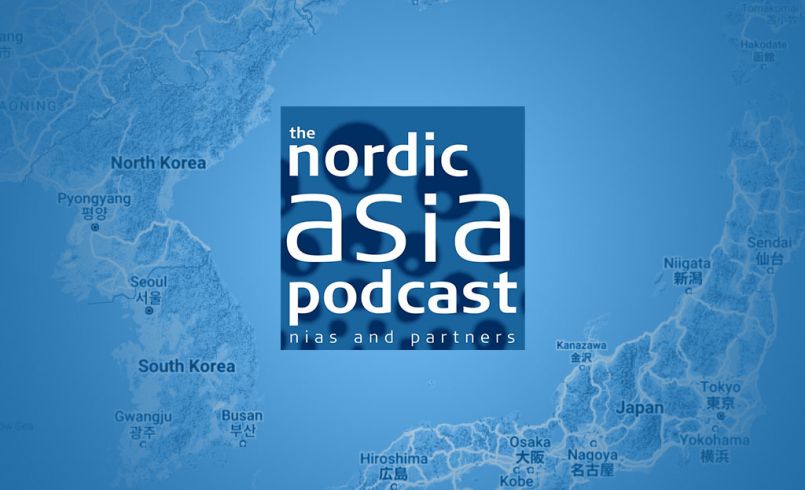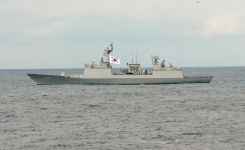- Daniel K. Inouye Asia-Pacific Center for Securi...
- DKI APCSS Professor Sungmin Cho Featured on the...
DKI APCSS Professor Sungmin Cho Featured on the Nordic Asia Podcast
On March 27, the Nordic Asia Podcast featured DKI APCSS professor Dr. Sungmin Cho who spoke on the multi-faceted security dilemmas that beset the Korean Peninsula.
In the thirty-minute interview, Dr. Cho forecasted future changes for South Korea’s President-elect Yoon Suk-yeol’s foreign policy. According to Dr. Cho, while the previous administration utilized a policy of strategic ambiguity, the incoming administration will move forward with strategic clarity. As expected, the new administration will emphasize the U.S.-South Korean Alliance. In regards to its relationship with China, the administration will seek to maintain a positive commercial relationship while avoiding retaliations related to security and politics.
Dr. Cho detailed previous economic retaliations from China in 2017 when, in response to North Korea’s military provocations, the U .S. moved its Terminal High Altitude Area Defense (THAAD) missile system into South Korea. Despite China’s protests that the U.S. Defense System’s radar could detect China’s military activities, the Park Geun-hye’s administration permitted the missile system, resulting in China’s economic retaliation against South Korean companies operating in China and banning Chinese tourism to South Korea.
For Dr. Cho, South Korea faces a dilemma where it must balance its economic dependency on China with its security requirements in responding to North Korea’s military provocations. In his view, the Yoon Suk-yeol administration will need to navigate three dilemmas that shape South Korea’s position with China. First, South Korea’s economy relies heavily on the Chinese market as its top trading partner accounting for 25% of South Korea’s trade. Second, because of China’s influence over North Korea, South Korea needs China’s approval in advancing the possibility of a future unification of the Korean peninsula. Third, South Korean people’s desire to cultivate a relationship with China will need to be balanced with U.S. fears that South Korea will become a Chinese ally.
“It’s a structural problem, said Dr. Cho. “It’s not a problem of agency. Whether you are conservative or progressive [in South Korea] it doesn’t matter. Because of the structural constraints South Korea doesn’t have many options other than trying to maintain a cooperative relationship with China.
Dr.Cho predicts that, in the next year, North Korea’s provocations will likely increase, necessitating a Republic of Korea- U.S. response, and in turn, more economic retaliations from China. In January, North Korea conducted 11 missile launches, a historical record. For Dr. Cho, while the frequency of missile launches has been alarming, North Korea’s alleged development of technology that will allow long-distance missiles to evade radar puts the U.S. in a position where it must respond.
“In a nutshell, North Korea is highly likely to scale up its military provocations,” said Dr. Cho. “Unlike the Moon Jae-in government, the Yoon Suk-yeol government will match North Korea’s enhanced capabilities. I foresee there will be an escalation of tension, which may be necessary. We cannot allow North Korea to keep developing its military capabilities while we seek idle.”
If, as Dr. Cho predicts, economic retaliations from China are forthcoming, he recommends that South Korea diversify its trade partnerships and garner domestic support via a public campaign warning the South Korean people that necessary economic struggles could be coming.”
Listen to the Podcast Online: https://newbooksnetwork.com/the-security-dilemma-in-the-korean-peninsula-foreign-policy-of-yoon-seok-youl-the-incoming-president-of-south-korea
Dr. Sungmin Cho is a professor at the Daniel K. Inouye Asia-Pacific Center for Security Studies. The views expressed in this article are his own and do not reflect those of DKI APCSS, the U.S. Department of Defense, or the U.S. Government.



